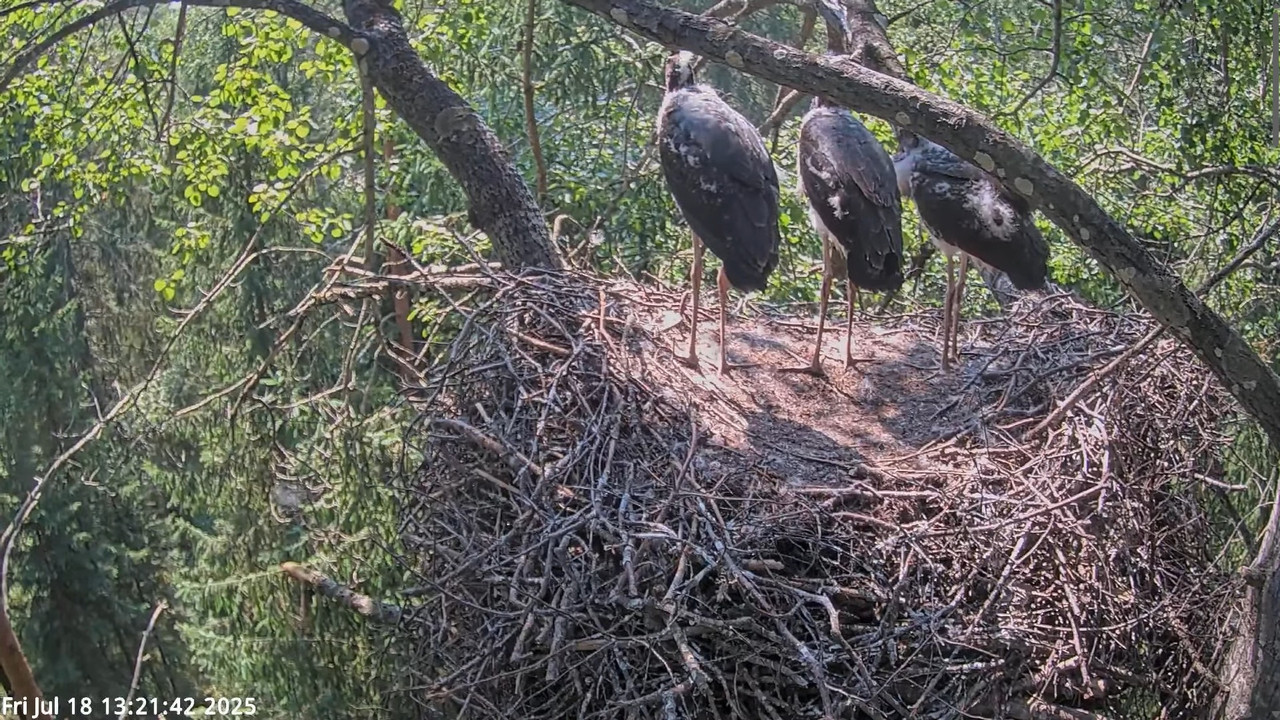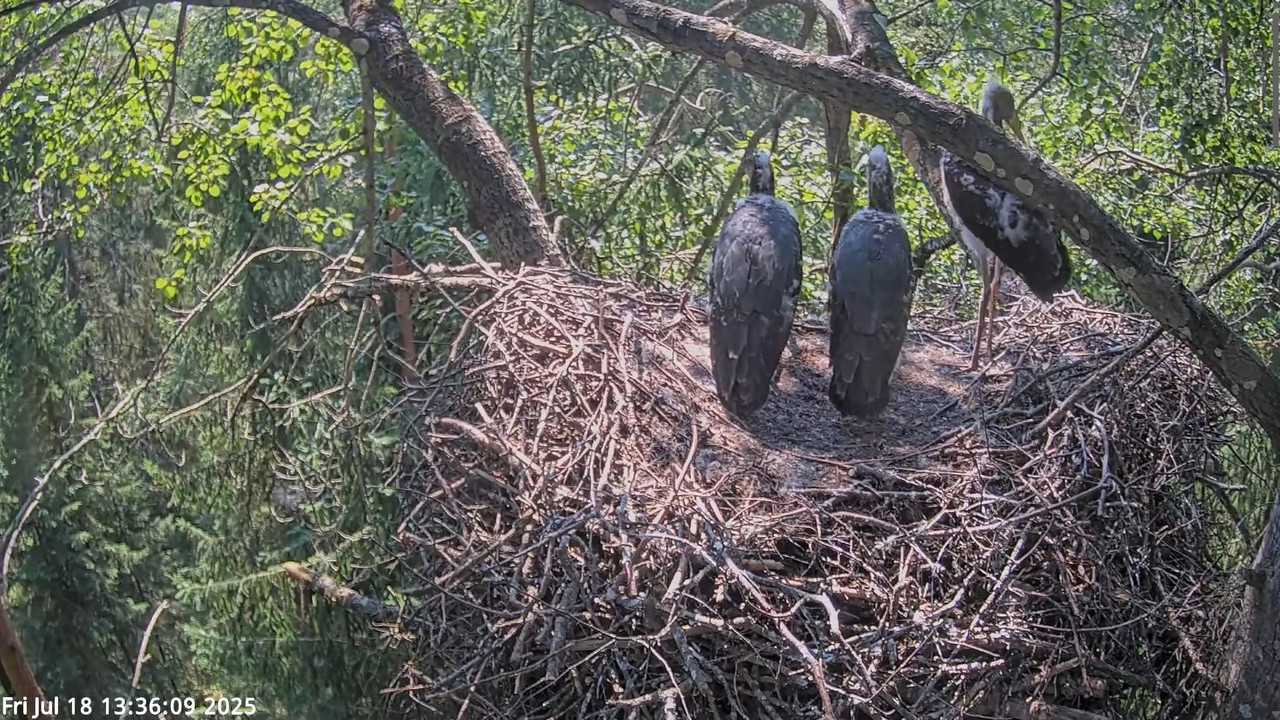ESTONIA Pärnu county (Kergu + Kerli)
-
marika.solo
- Site Admin
- Posts: 20372
- Joined: 29 Sep 2021, 09:38
Re: ESTONIA Pärnu county (Kergu + Kerli)
FEEDING by KERGU 11.40.40 - 11.41.06; frog, frogs, frogs
-
marika.solo
- Site Admin
- Posts: 20372
- Joined: 29 Sep 2021, 09:38
Re: ESTONIA Pärnu county (Kergu + Kerli)
FEEDING by Kerli again 13.10.46 - 13.11.16 / KERGU
(thx Hazza for correction)
continuation:
- 13.10.03 they are noticing one adult stork, "food delivery" behaviour (it seems this stork is flying around the nest)
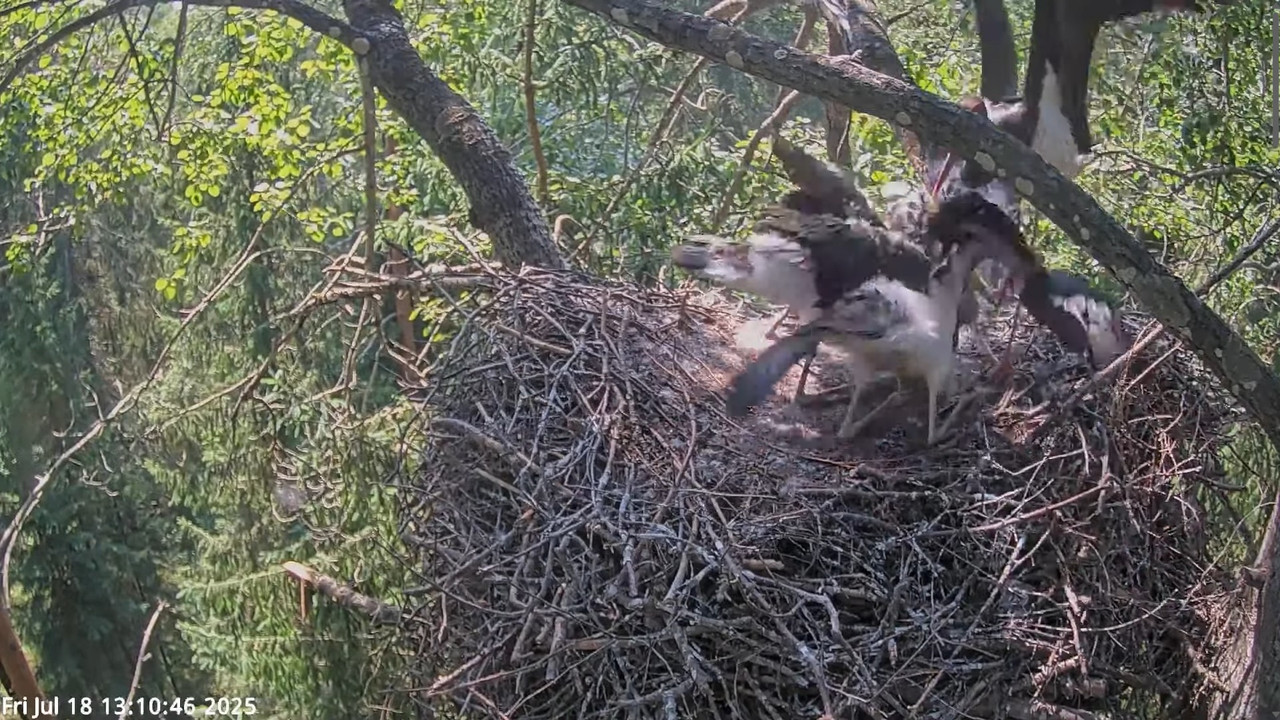
- this is usually the landing place of our female Kerli (the direction of arrival cannot be relied upon )
)
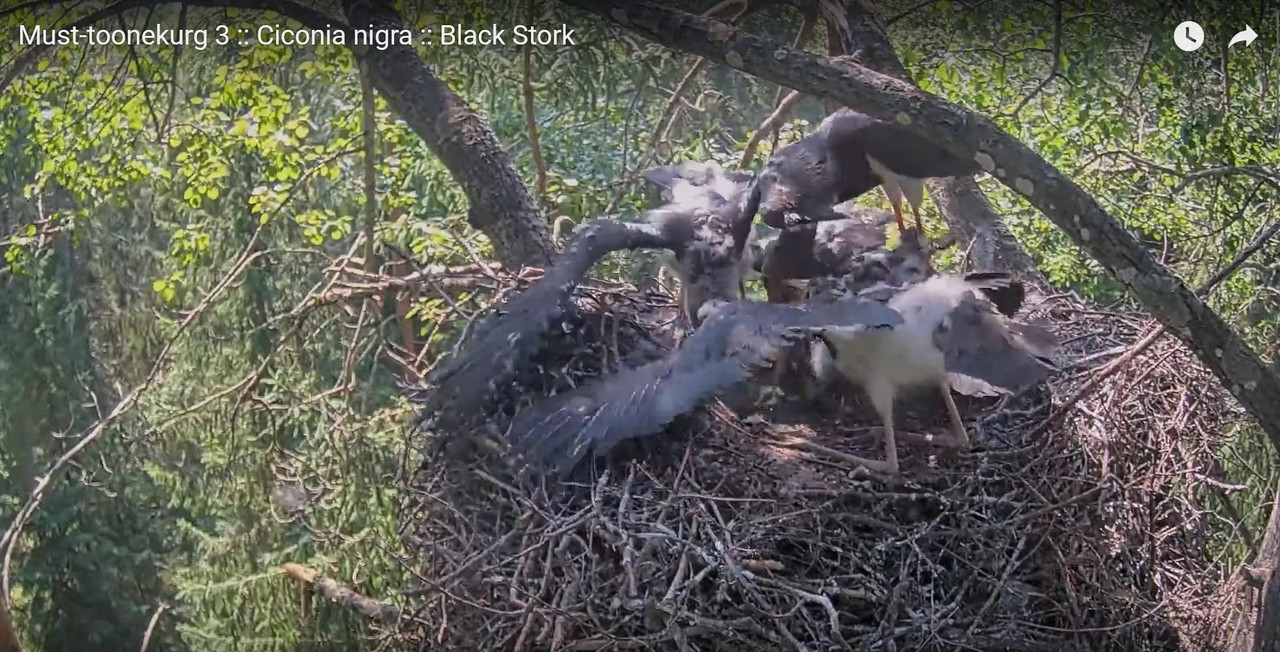
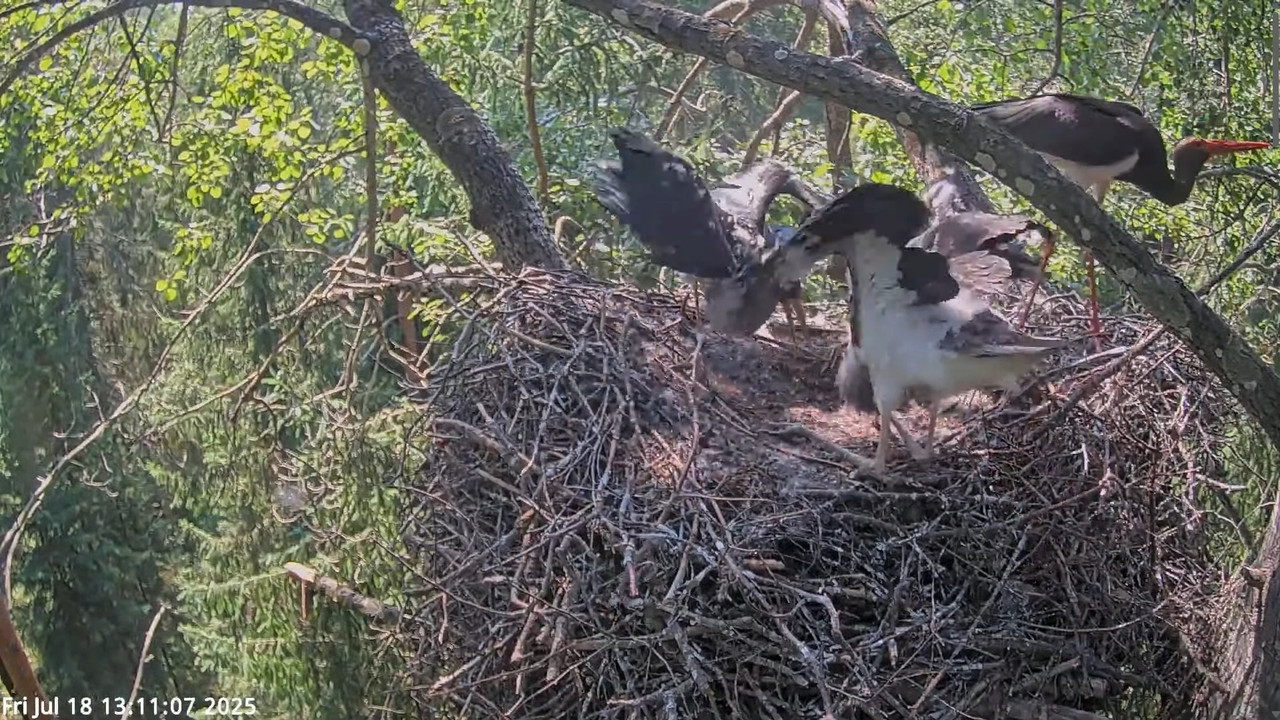
(thx Hazza for correction)
continuation:
- 13.10.03 they are noticing one adult stork, "food delivery" behaviour (it seems this stork is flying around the nest)

- this is usually the landing place of our female Kerli (the direction of arrival cannot be relied upon


-
marika.solo
- Site Admin
- Posts: 20372
- Joined: 29 Sep 2021, 09:38
Re: ESTONIA Pärnu county (Kergu + Kerli)
13.51.28 streaming stopped
continuation
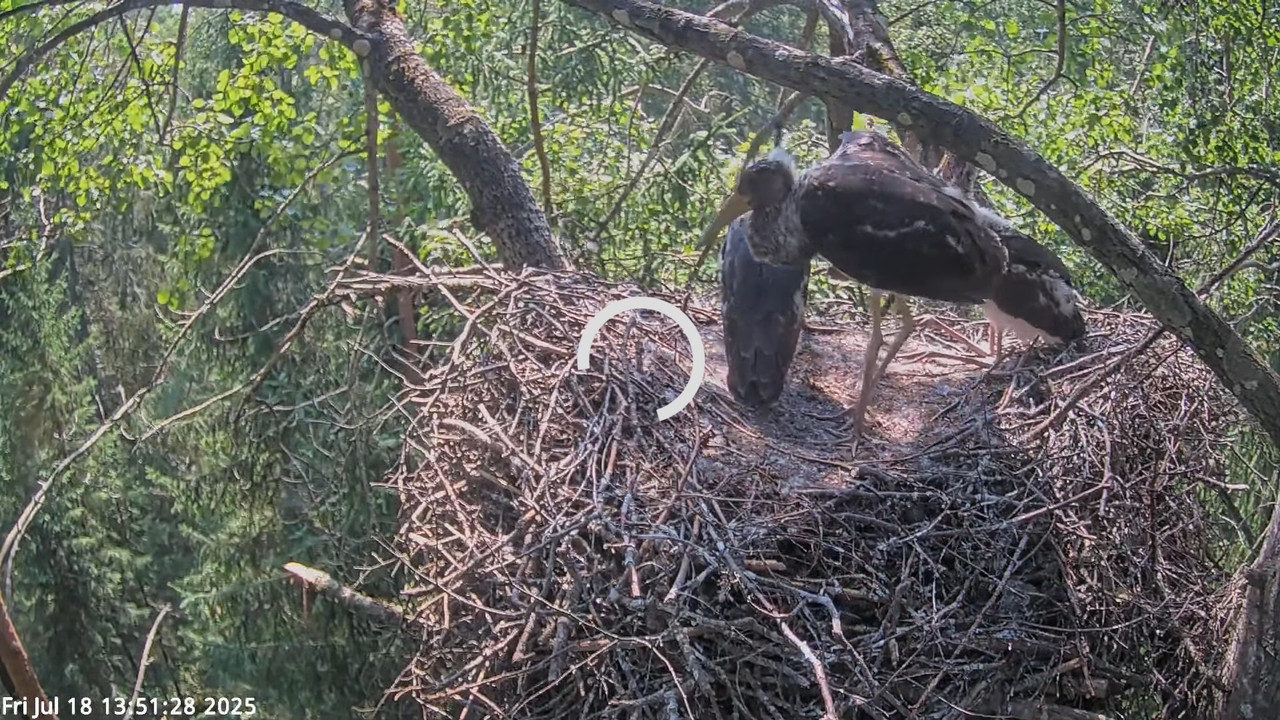
continuation

-
marika.solo
- Site Admin
- Posts: 20372
- Joined: 29 Sep 2021, 09:38
-
marika.solo
- Site Admin
- Posts: 20372
- Joined: 29 Sep 2021, 09:38
Re: ESTONIA Pärnu county (Kergu + Kerli)
Chick Age (Days) / Action / Notes
20–25
Too early — avoid disturbance
Chicks fragile
25–35
Ideal for ringing only
Low risk of fledging
35–45
Ringing + possible transmitter
Monitor closely
45–55
Best for transmitter (if goal is post-fledge tracking)
Risk of early fledging
This later timing ensures:
- A better fit for the transmitter harness.
- Stronger body condition to carry the device.
- More durable feathers to protect from abrasion.
However, the trade-off is a greater risk of premature fledging or nest abandonment due to disturbance — so timing depends on specific project goals, site accessibility, and individual chick behaviour.
20–25
Too early — avoid disturbance
Chicks fragile
25–35
Ideal for ringing only
Low risk of fledging
35–45
Ringing + possible transmitter
Monitor closely
45–55
Best for transmitter (if goal is post-fledge tracking)
Risk of early fledging
This later timing ensures:
- A better fit for the transmitter harness.
- Stronger body condition to carry the device.
- More durable feathers to protect from abrasion.
However, the trade-off is a greater risk of premature fledging or nest abandonment due to disturbance — so timing depends on specific project goals, site accessibility, and individual chick behaviour.
